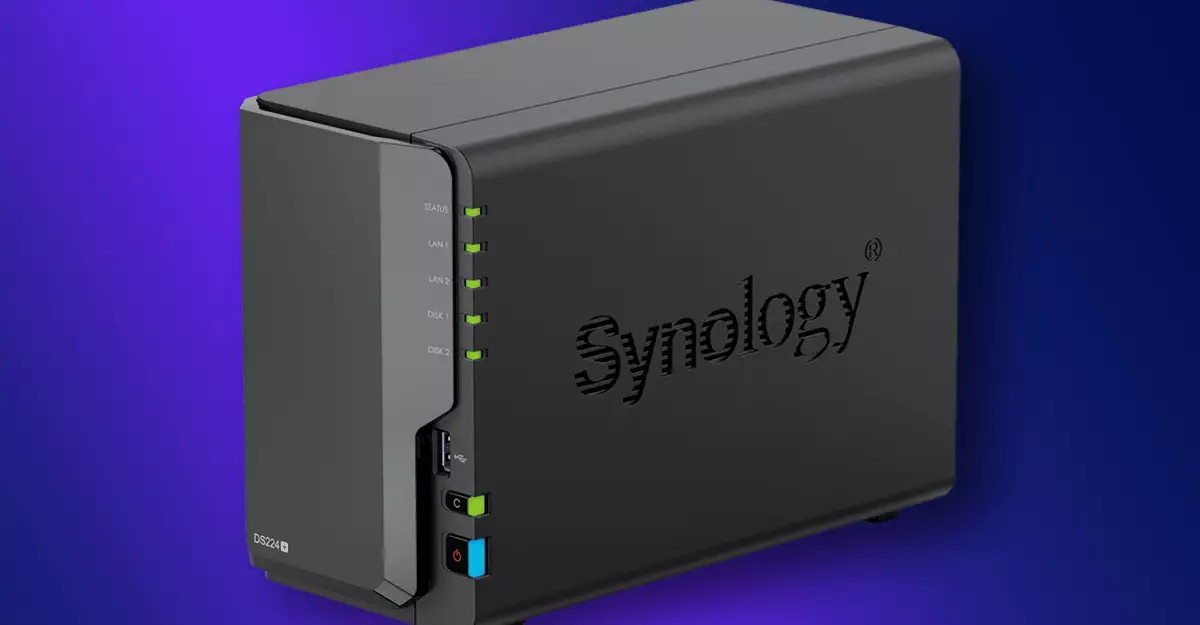In a surprising twist in the world of data storage, Synology, the renowned network attached storage (NAS) company, is set to implement new restrictions on third-party hard drives in its upcoming models. This significant change, slated for the Plus Series devices set to launch in 2025, is a clear indication that Synology is taking steps to tighten its grip on the hardware ecosystem surrounding its NAS products. While existing models will remain untouched, the looming changes raise several questions about the implications for consumers and the future of NAS systems.
The Joys and Jabs of Market Control
From a business standpoint, restricting third-party drives could be seen as a necessity. Synology claims that extensive internal testing has demonstrated that using Synology-branded drives or certified alternatives reduces the chances of drive failure and compatibility issues. This narrative, however, feels more like an attempt to foster brand loyalty and ensure reliability rather than a customer-centric initiative aimed at broadening user functionality. By limiting choices, Synology not only sidelines consumer preferences but also could inadvertently inflate prices, as users will have fewer affordable options for upgrades or replacements.
The decision to push for certified third-party drives is a common pattern in tech industries, reminiscent of printer companies that essentially force users to buy proprietary ink cartridges. Nevertheless, Synology’s approach has been somewhat palatable—current users of existing NAS systems won’t feel immediate effects, which is a concession not often afforded by similar corporate strategies. However, does this effort truly benefit the user, or is it veiled control dressed as concern for performance?
The Impact on Consumer Choices
The prospect of losing the versatility that third-party drives have afforded Synology NAS users is disheartening. Historically, users have enjoyed the freedom to mix and match various drives, optimizing their systems according to price and performance, all while having the peace of mind that comes with customization. The looming restrictions could hinder this spirit of flexibility, forcing users into a narrow channel dictated by Synology’s standards. Such limitations might require consumers to sacrifice personal preference under the guise of enhanced system reliability and performance.
Synology’s commitment to providing a limited list of certified drives implies a future filled with a monoculture of drive options. This scenario is troubling for consumers who have long taken pride in their ability to choose, manage, and enhance their NAS experience. While the current drive pool may offer sufficient options, the looming restrictions could create an environment where market competition suffers, and prices inevitably rise as companies capitalize on the lack of choice.
Future Implications for NAS Users
As Synology embarks on this bold transition, the questions linger: will these restrictions genuinely enhance system performance, or are they merely a means to assert dominance in the market? If Synology’s new policies ultimately result in a more stable and reliable system, then perhaps some trade-offs could be justified. However, if users end up paying more for less choice without any noticeable improvements in their day-to-day operations, the backlash could be significant.
Moreover, the compatibility lists that Synology plans to provide will be central to user satisfaction. It remains unclear how comprehensive or up-to-date these lists will be. In an industry where technology evolves at breakneck speed, having an updated database of certified drives is essential to nurture consumer confidence and drive adoption of these new restrictions. If Synology struggles to maintain this equilibrium, it risks alienating its user base and losing the very loyalty they seek to protect.
The Balancing Act of Innovation and Consumer Satisfaction
As the tech landscape continues to evolve, Synology must tread carefully. The drive towards streamlined compatibility and enhanced system reliability is commendable, yet the execution of such a vision must be handled with a sense of balance between innovation and user satisfaction. Visibly, it is an attempt to reassure customers that the systems they invest in are secure and dependable.
However, in an era where customization and user-centric designs reign supreme, attempts at monopolistic control over third-party hardware seem misaligned with current consumer expectations. As Synology forges ahead into this new territory, it remains to be seen whether this bold strategy will ultimately fortify their standing in the market or lead to unintended consequences that alienate devoted users. The balance of power in the NAS world is shifting, and consumers will closely monitor how these new restrictions unfold.


Leave a Reply